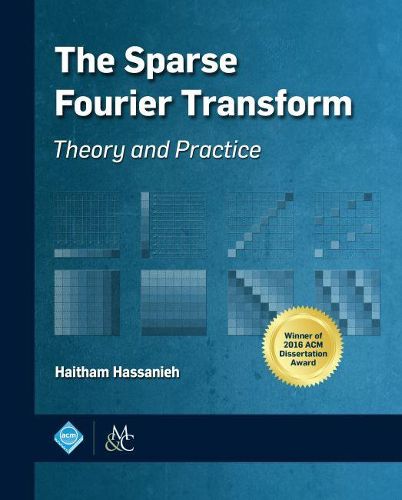Readings Newsletter
Become a Readings Member to make your shopping experience even easier.
Sign in or sign up for free!
You’re not far away from qualifying for FREE standard shipping within Australia
You’ve qualified for FREE standard shipping within Australia
The cart is loading…






This title is printed to order. This book may have been self-published. If so, we cannot guarantee the quality of the content. In the main most books will have gone through the editing process however some may not. We therefore suggest that you be aware of this before ordering this book. If in doubt check either the author or publisher’s details as we are unable to accept any returns unless they are faulty. Please contact us if you have any questions.
The Fourier transform is one of the most fundamental tools for computing the frequency representation of signals. It plays a central role in signal processing, communications, audio and video compression, medical imaging, genomics, astronomy, as well as many other areas. Because of its widespread use, fast algorithms for computing the Fourier transform can benefit a large number of applications. The fastest algorithm for computing the Fourier transform is the Fast Fourier Transform (FFT), which runs in near-linear time making it an indispensable tool for many applications. However, today, the runtime of the FFT algorithm is no longer fast enough especially for big data problems where each dataset can be few terabytes. Hence, faster algorithms that run in sublinear time, i.e., do not even sample all the data points, have become necessary.
This book addresses the above problem by developing the Sparse Fourier Transform algorithms and building practical systems that use these algorithms to solve key problems in six different applications: wireless networks; mobile systems; computer graphics; medical imaging; biochemistry; and digital circuits.
This is a revised version of the thesis that won the 2016 ACM Doctoral Dissertation Award.
$9.00 standard shipping within Australia
FREE standard shipping within Australia for orders over $100.00
Express & International shipping calculated at checkout
This title is printed to order. This book may have been self-published. If so, we cannot guarantee the quality of the content. In the main most books will have gone through the editing process however some may not. We therefore suggest that you be aware of this before ordering this book. If in doubt check either the author or publisher’s details as we are unable to accept any returns unless they are faulty. Please contact us if you have any questions.
The Fourier transform is one of the most fundamental tools for computing the frequency representation of signals. It plays a central role in signal processing, communications, audio and video compression, medical imaging, genomics, astronomy, as well as many other areas. Because of its widespread use, fast algorithms for computing the Fourier transform can benefit a large number of applications. The fastest algorithm for computing the Fourier transform is the Fast Fourier Transform (FFT), which runs in near-linear time making it an indispensable tool for many applications. However, today, the runtime of the FFT algorithm is no longer fast enough especially for big data problems where each dataset can be few terabytes. Hence, faster algorithms that run in sublinear time, i.e., do not even sample all the data points, have become necessary.
This book addresses the above problem by developing the Sparse Fourier Transform algorithms and building practical systems that use these algorithms to solve key problems in six different applications: wireless networks; mobile systems; computer graphics; medical imaging; biochemistry; and digital circuits.
This is a revised version of the thesis that won the 2016 ACM Doctoral Dissertation Award.